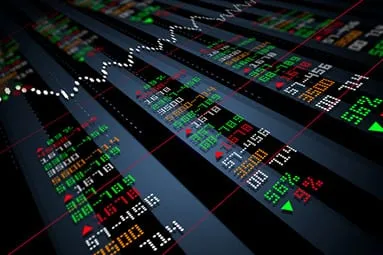Here are five important considerations for currency traders when choosing a broker in today's highly competitive forex marketplace.
The foreign exchange market accounts for more than $4 trillion in average daily trading volume, making it the world's largest financial market. Since there is no central marketplace for forex, traders must select a forex broker to help them conduct their trading activity.
There is a large and growing number of forex brokers, and choosing the right one requires cautiously sifting through an overwhelming number of magazine and Internet advertisements.
In this article, we'll look at five considerations when choosing a forex broker in today's competitive forex marketplace.
Regulatory Compliance
In the US, a reputable forex broker will be a member of the National Futures Association (NFA) and will be registered with the US Commodity Futures Trading Commission (CFTC) as a futures commission merchant and retail foreign exchange dealer.
The NFA is an industry-wide regulatory organization for the futures industry in the United States. It develops rules, programs, and services to protect the integrity of the market, traders, and investors, and to help members meet regulatory responsibilities.
The CFTC is an independent government agency that regulates the commodity futures and options markets in the United States. The CFTC's mission is to "Protect market users and the public from fraud, manipulation, and abusive practices related to the sale of commodity and financial futures and options, and to foster open, competitive, and financially-sound futures and option markets."
A flashy or professional-looking Web site does not guarantee that the broker is an NFA member or under CFTC regulation. A broker that is a member of the National Futures Association and subject to CFTC regulations will state this and its NFA member number on its Web site, typically in the "About Us" section and on each Web page.
Each country outside of the United States has its own regulatory body. Due to potential concerns regarding the safety of deposits and the integrity of the broker, accounts should only be opened with firms that are duly regulated.
Account Details
Each forex broker has different account offerings, including:
- Leverage and Margin: Forex participants have access to a variety of leverage amounts depending on the broker, such as 50:1 or 200:1.
Leverage is a loan extended to margin account holders by their brokers. For example, using 50:1 leverage, a trader with an account size of $1,000 can hold a position that is valued at $50,000. Leverage works in a trader's favor with winning positions since the potential for profits is greatly enhanced.
Leverage can, however, quickly destroy a trader's account since the potential for losses is magnified as well. Leverage should be used with caution.
- Commissions and Spreads: A broker makes money through commissions and spreads. A broker that uses commissions may charge a specified percentage of the spread, the difference between the bid and ask price of the forex pair.
However, many brokers advertise that they charge no commissions, and instead make their money with wider spreads. For example, the spread could be a fixed spread of three pips (a pip is the minimum unit of price change in forex), or the spread could be variable depending on market volatility.
A EUR/USD quote of 1.3943 - 1.3946 has a three-pip spread. That means that as soon as a market participant buys at 1.3946, the position has already lost three pips of value since it could only be sold immediately for 1.3943.
The wider the spread, then, the more difficult it can be to make a profit. Popular trading pairs, such as the EUR/USD and GBP/USD, will typically have tighter spreads than the more thinly-traded pairs.
- Initial Deposit: Most forex accounts can be funded with a very small initial deposit, even as low as $50. With leverage, of course, the buying power is much greater than the minimum deposit, which is one reason forex trading is attractive to new traders and investors. Many brokers offer standard, mini, and micro accounts with varying initial deposit requirements.
- Ease of Deposits and Withdrawals: Each forex broker has specific account withdrawal and funding policies. Brokers may allow account holders to fund accounts online with a credit card, via ACH payment, or via PayPal, or with a wire transfer, bank check, or business or personal check. Withdrawals can typically be made by check or by wire transfer. The broker may charge a fee for either service.
Article Continues on Page 2
|pagebreak|Currency Pairs Offered
While there is a great deal of currencies available for trading, only a few get the majority of the attention, and therefore, trade with the greatest liquidity. The "majors" are the US dollar/Japanese yen (USD/JPY), the euro/US dollar (EUR/USD), the US dollar/Swiss franc (USD/CHF), and the British pound/US dollar (GBP/USD). A broker may offer a huge selection of forex pairs, but what is most important is that they offer the pair(s) in which the trader or investor is interested.
Customer Service
Forex trading occurs 24 hours a day, so a broker's customer support should be available at any time. Another consideration is the ease with which one can speak with a live person, rather than a time consuming, and often frustrating, auto attendant.
When considering a broker, a quick call can give you an idea of the type of customer service they provide, wait times, and the representative's ability to concisely answer questions regarding spreads, leverage, regulations, and company details. These details include how long they have been a forex broker and the size of their trade volume (larger brokers generally have access to better prices and execution).
Trading Platform
The trading platform is the investor's portal to the markets. As such, traders should make sure the platform and any software is easy to use, visually pleasing, has a variety of technical and/or fundamental analysis tools, and that trades can be entered and exited with ease.
This last point is especially important: A well-designed trading platform will have clear buy and sell buttons, and some even have a "panic" button that closes all open positions.
A poorly designed interface, on the other hand, could lead to costly order-entry mistakes, such as accidentally adding to a position rather than closing it, or going short when you meant to go long.
Other considerations include customization options, order entry types, automated trading options, strategy builders, backtesting, and trading alerts. Most brokers offer free demo accounts so that traders can try out the trading platform prior to opening and funding an account.
The Bottom Line
If you have confidence in your forex broker, you will be able to devote more time and attention to analysis and developing forex strategies. A bit of research before committing to a broker goes a long way, and can increase an investor's odds of success in the competitive forex market.
By Jean Folger, author, Make Money Trading: How to Build a Winning Trading Business
Jean Folger is co-author of the award-winning book MakeMoney Trading: How to Build a Winning Trading Business, and has written numerous articles appearing in Futures Magazine, Smart Trade Digest, and other online venues. She is co-author of the eBooks Volatility Indicators: Techniques for Profiting from the Market's Moves; and High Profits in High Heels: Secrets from Today's Top Women Traders.









